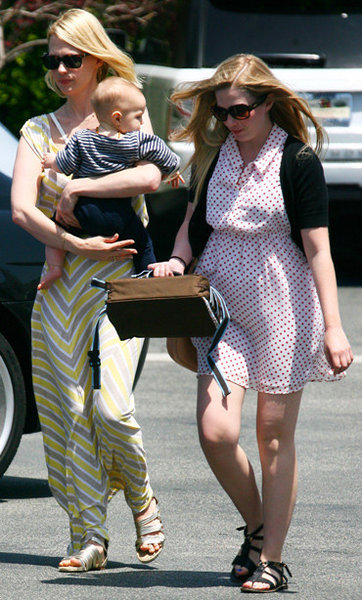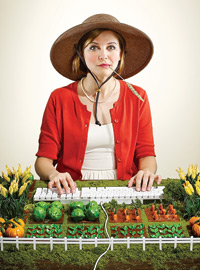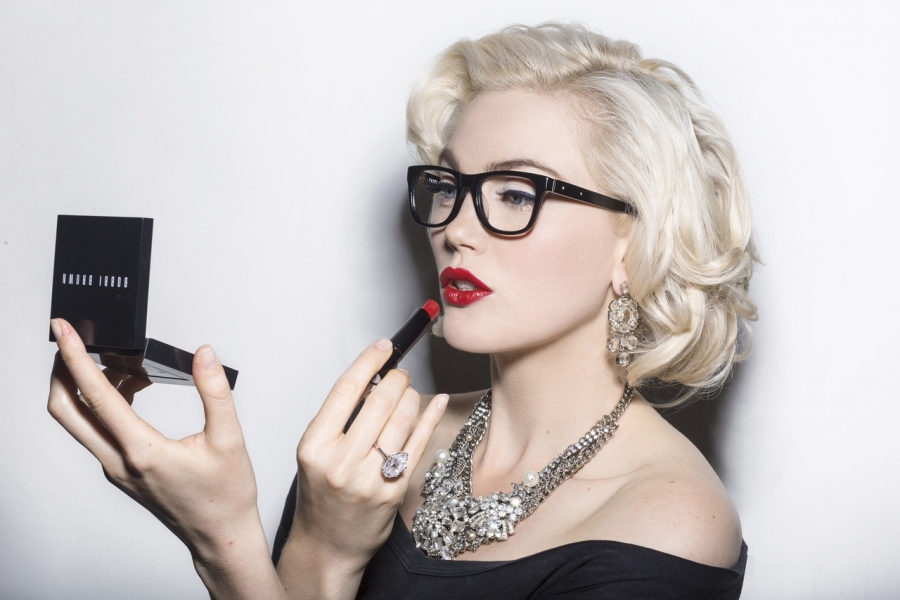|
How to parent like a celebrity
Posted on: 05/13/12
Alicia Silverstone, Gisele Bundchen and January Jones bring star power to extreme mothering. What do experts say about chewing food for kids, vegan diets and more? So what do these parents know that your average sleep-deprived parent — who barely has time to shop for food, let alone chew it for their kids — doesn't? Here, experts weigh in on the evidence. Pre-masticating In a breakfast-time video, Silverstone chews up the vegetables in her miso soup. Then she opens her mouth so that her son, Bear Blu, can eat the mush. Finally, she beams at the camera. "People have been feeding that way for thousands of years," Silverstone says later in interviews, once her video went viral and evoked its share of outrage and mockery. "It's a weaning process." The video raised one big question: Why? The answer, experts say, depends on your resources. Pre-mastication likely developed in human societies to safely feed babies their first solid foods before the invention of blenders. In a 2010 study in the journal Maternal & Child Nutrition, 63% of Chinese university students surveyed said they had been fed pre-masticated food as infants. In developed societies, on the other hand, pre-mastication might do more harm than good. Studies have shown it can spread HIV, hepatitis B and other viruses from adult to child. It can also transfer bacteria that cause aggressive cavities, says Wendy Sue Swanson, a pediatrician at Seattle Children's Hospital. "Pre-mastication is a cultural practice ultimately designed for communities and cultures that didn't have knives, forks and machines to soften food," she says. "It doesn't make sense why anyone would want to do it just because Alicia Silverstone does it." Vegan babies Silverstone also is among the celebrities whose children get no animal products on their plates, as is Blink 182 drummerTravis Barker. "Bones" actress Emily Deschanel and singerAlanis Morissette maintained vegan diets throughout their pregnancies. It is possible to raise healthy vegan kids, experts say, but parents need to be careful to avoid nutrient deficiencies, especially of vitamin B12, which occurs naturally in meat and dairy (but not, as many natural health websites claim, inspirulina). For vegan nursing mothers and vegan children, Thomas Sanders, a professor of nutrition and dietetics at King's College London, recommends supplementing or eating foods fortified with vitamin B12 and vitamin D. Several studies, including Sanders' own longtime research on children born in the 1970s, show that vegan boys end up being shorter than their peers during the first five years of life, and this difference can persist into adulthood. On the plus side, vegans tend to have low blood pressure, low cholesterol levels and low rates of obesity and related diseases. Placenta-eating She had enough energy to return to the set of "Mad Men" less than two months after giving birth, and for that, Jones credits pills made from her own dehydrated placenta. In response to grossed-out critics, Jones argued that humans are the only mammals who don't regularly eat their placentas after giving birth (mostly true, with the exception of marine mammals that give birth in water, camels and a few others). Advocates also claim that placenta pills reduce the risk of postpartum depression, increase supplies of breast milk and ease recovery after childbirth. Many midwives and doulas now offer placenta-encapsulation services. For mice and rat mothers, studies show that a powerful attraction to both placentas and amniotic fluid helps them develop maternal feelings for their afterbirth-coated young. Eating birth tissues and fluids while laboring also seems to increase their pain tolerance, says Mark Kristal, a behavioral neuroscientist who studies placentophagia at the University at Buffalo in New York. And even though Kristal is working to isolate a molecule in mammalian afterbirth that might eventually lead to powerful painkillers for people (including men), he says there is no evidence that human mothers get any benefit from eating their placentas. We say: Phew. Extended breast-feeding Known for her roles as Amy Farrah Fowler on "The Big Bang Theory"and as Blossom in the '90s TV show of the same name, Mayim Bialik has more recently gained attention for earning a doctorate in neuroscience and writing extensively about attachment parenting, a philosophy that advocates co-sleeping and baby-wearing, among other strategies for close bonding. Bialik is still nursing her 31/2-year-old son, Fred. Extended breast-feeding — past the age of 1 — is not the norm in the United States, but various cultures have regularly nursed their children up to age 6 or older, says University of Delawarebiocultural anthropologist Katherine Dettwyler. Her research suggests that a biologically "natural" age for human weaning ranges from 21/2 to 7. Studies have linked breast-feeding with a variety of benefits for babies, including lower risks of obesity, asthma and gastrointestinal infections, and better intellectual performance, along with reduced risk of certain cancers for some mothers. But few studies last beyond infancy or early childhood. So even though advocates claim that the benefits of breast milk continue through age 6 or 7, there's no evidence that it's better than a diet rich in vitamins and minerals, Swanson says. The World Health Organization recommends exclusive breast-feeding for the first six months, followed by supplemental nursing through age 2 or longer, while the American Academy of Pediatricsrecommends going for at least a year. Dettwyler says, "Any nursing is better than no nursing at all." Diaper-free babies Toilet-trained at 6 months? Sounds great, but it might be the parents who are getting trained. In the Western world, most doctors recommend waiting until a child is 18 months to begin toilet training; that's when it is believed that the brain can begin to recognize signals from the bladder. But in parts of Asia, Africa and other places where resources may be lacking for years worth of Huggies, mothers carry around naked infants, apparently without incident. Celebs, including Bundchen and Bialik, are signing on. The practice is called elimination communication or natural infant hygiene. Bundchen says she had her son trained by 6 months; Bialik says her son was in underwear by 17 months. By learning to respond immediately to the signs of a baby's impending bladder or bowel release by holding him over a toilet and giving a vocal or hand signal — and beginning the process within the first six months of life — advocates say that parents can save loads of money on diapers, reduce skin irritation and avoid willful potty-training battles. Of course, caregivers also need to have lots of time and patience — and maybe a cleanup staff? COMMENTS
Be the first to post a comment! Post A Comment:

|
.gif)



.jpg)

